
Music & Sound
-
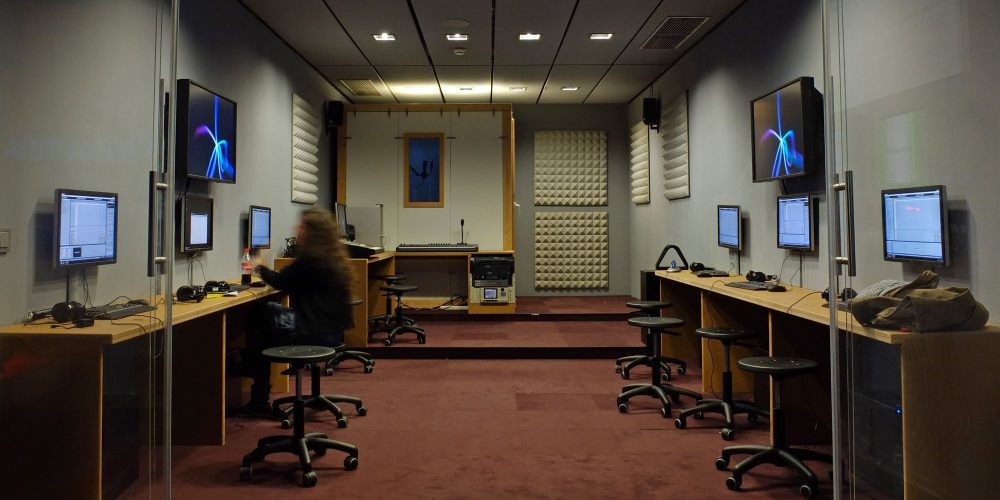
Throwback: SoundLab
The SoundLab at the Ars Electronica Center offered professional equipment for capturing and producing noise, sound and music.
-
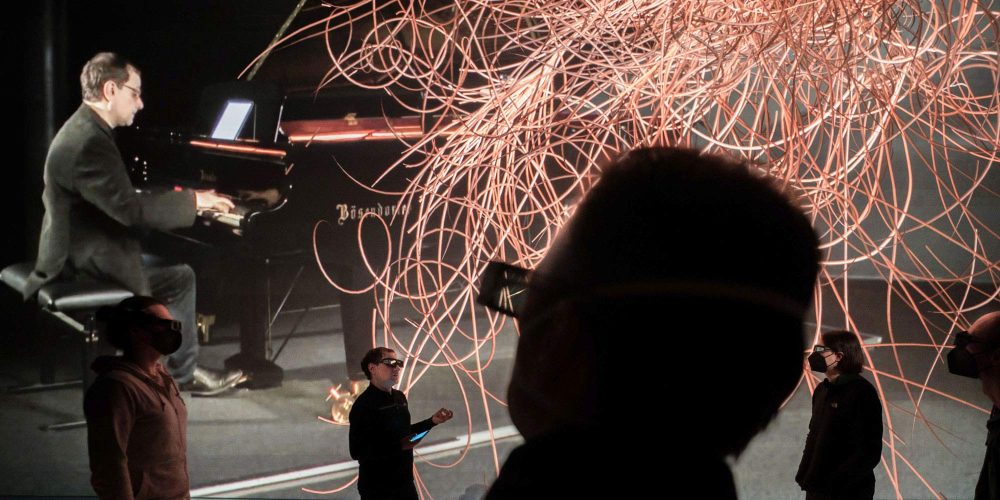
Deep Space EVOLUTION: Sounding Letters
With a virtual piano concert in 3D, the new program in Deep Space 8K shows how humans and AI make music together.
-
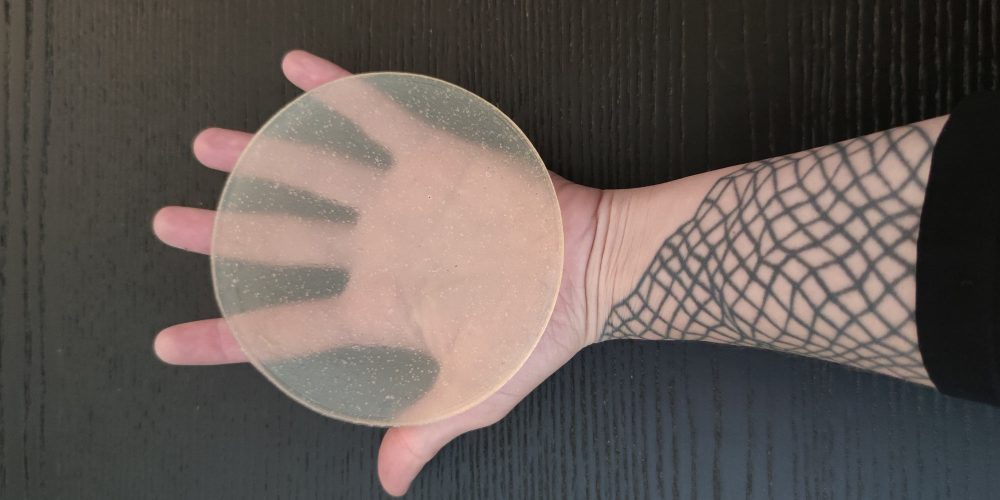
Circular Records for Circular Futures
Can records be made from biomaterials? Artists Kat Austen and Fara Peluso think so and will work on developing a low-carbon alternative to vinyl during their S+T+ARTS Residency.
-
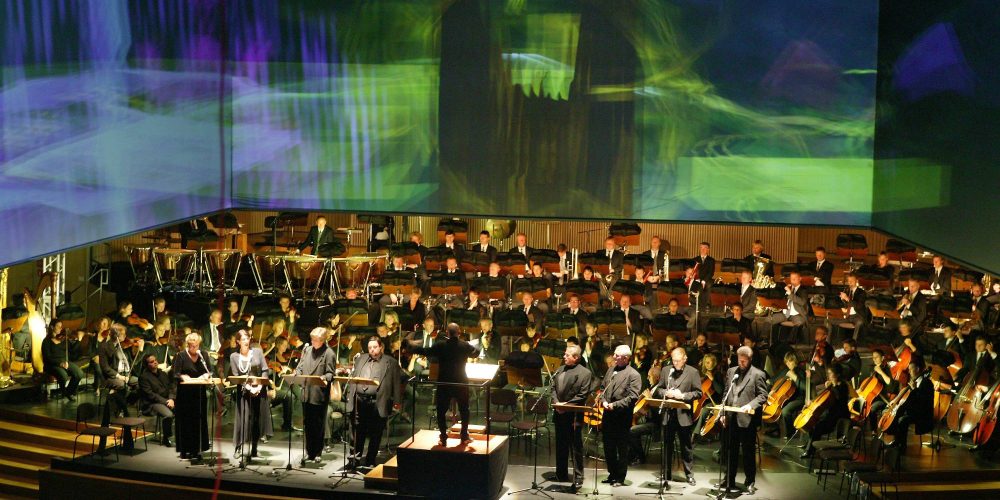
Throwback: Das Rheingold
In 2004, the Ars Electronica Futurelab designed an interactive computer-controlled visualization for the opera “Das Rheingold” by Richard Wagner.
-
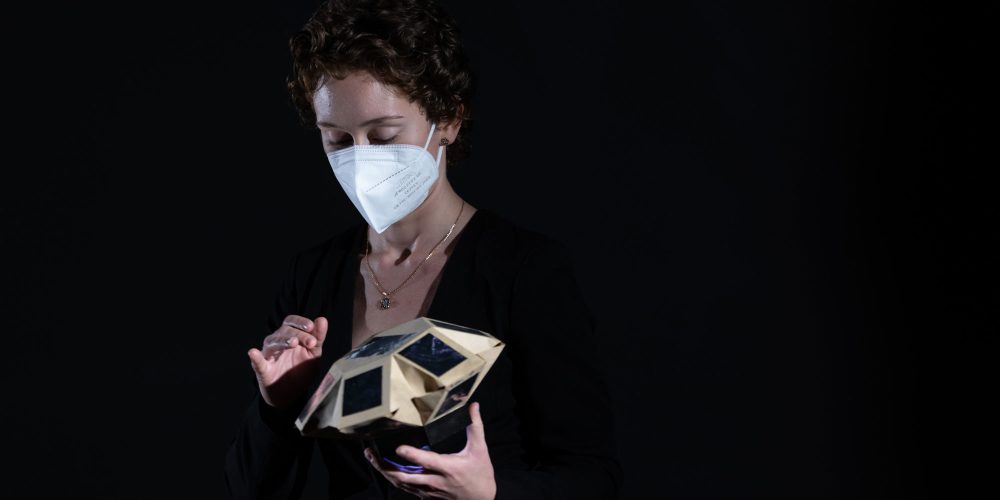
Origami, robotics and a new world of music
How do origami and robotics create music? The Ars Electronica Futurelab’s new video presents the world of oribotic instruments.
-
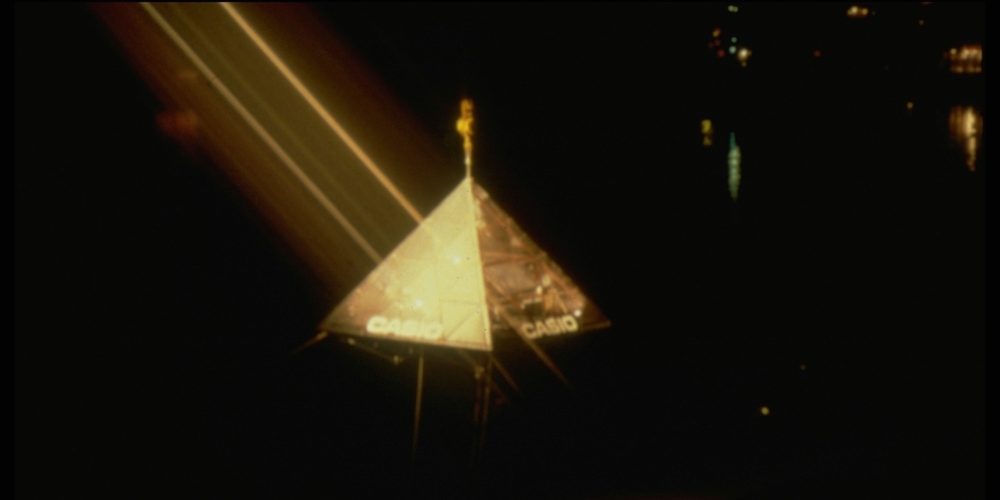
Throwback: UFOs over Linz
In a glass pyramid, 30 meters above the Danube, Isao Tomita enchanted the visitors of the Klangwolke 1984.
-

Throwback: The pioneer of the synthesizer
Robert Moog is considered a pioneer of the synthesizer. In the 80s, the American inventor honored us twice in Linz.
-
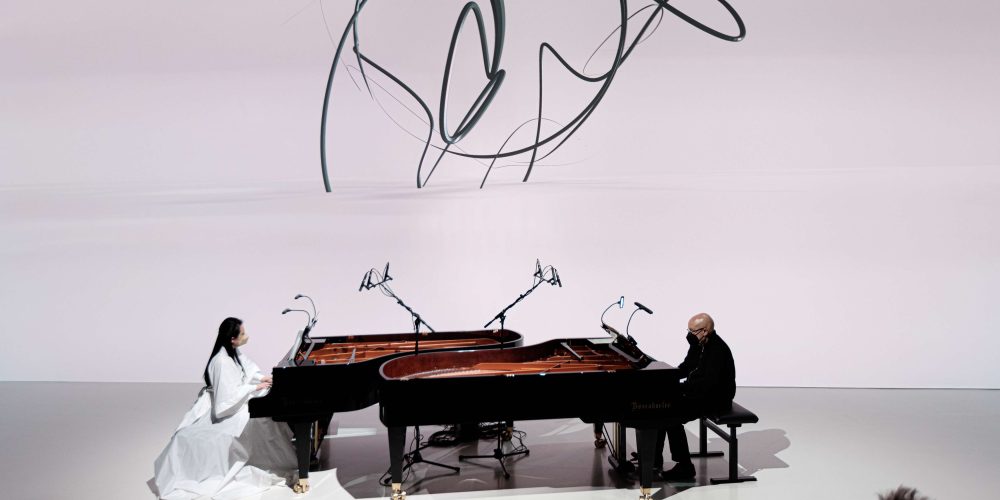
Deep Space Concert: Philip Glass 85
On the occasion of the 85th birthday of Philip Glass, one of the most important composers of our time, pianists Dennis Russell Davies and Maki Namekawa dedicated an extraordinary concert to his music.
-
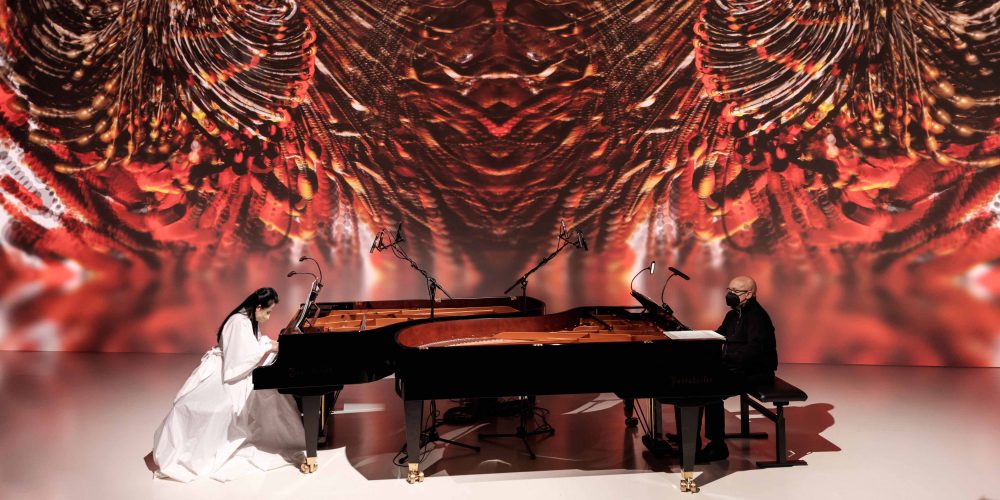
An Evening for Philip Glass
This is rather extraordinary, when two pianists congratulate a composer on his 85th birthday with his own music.
-
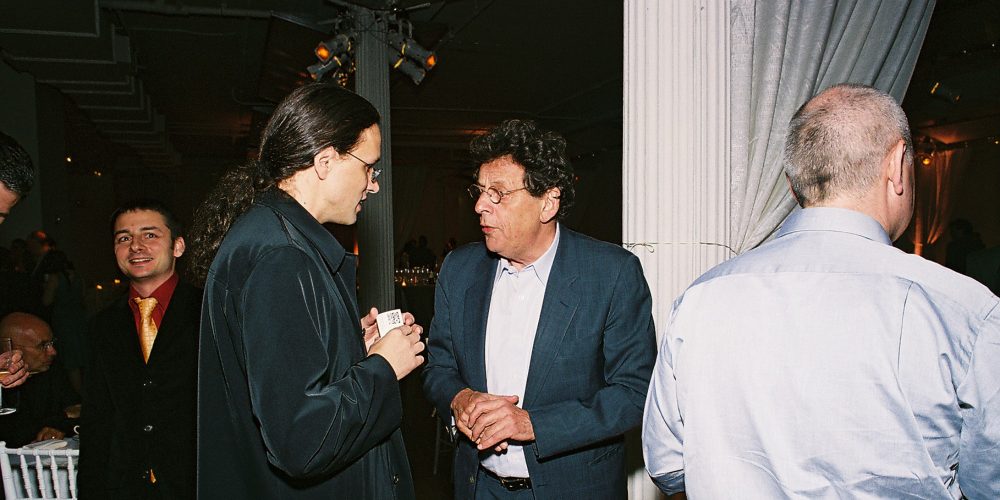
Happy Birthday, Philip Glass!
Philip Glass, the most famous representative of minimal music and longtime companion of Ars Electronica, celebrates his 85th birthday – we congratulate him!
-
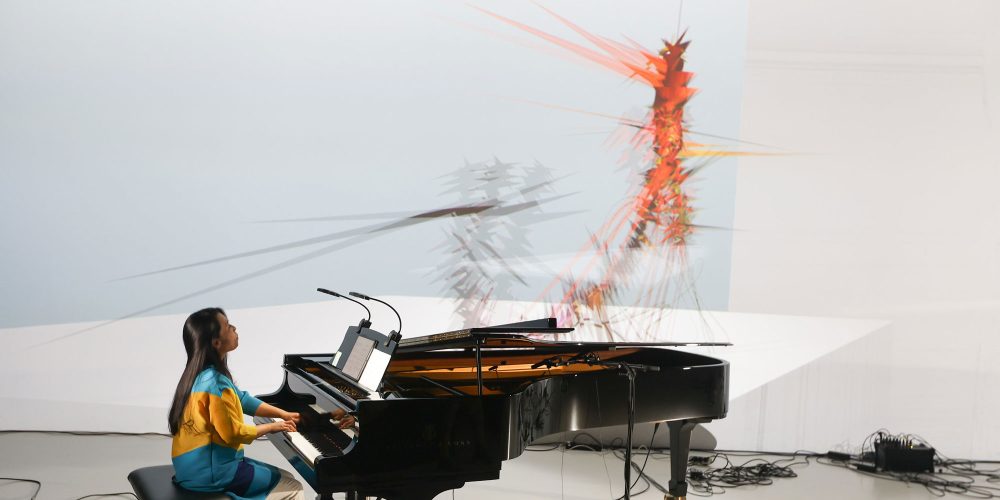
Morphologies – Digital Formations and Analog Music
Analog music generates digital visualizations: Maki Namekawa, Cori O’Lan and Rubin Kodheli in a timeless night performance at Deep Space 8K.
-
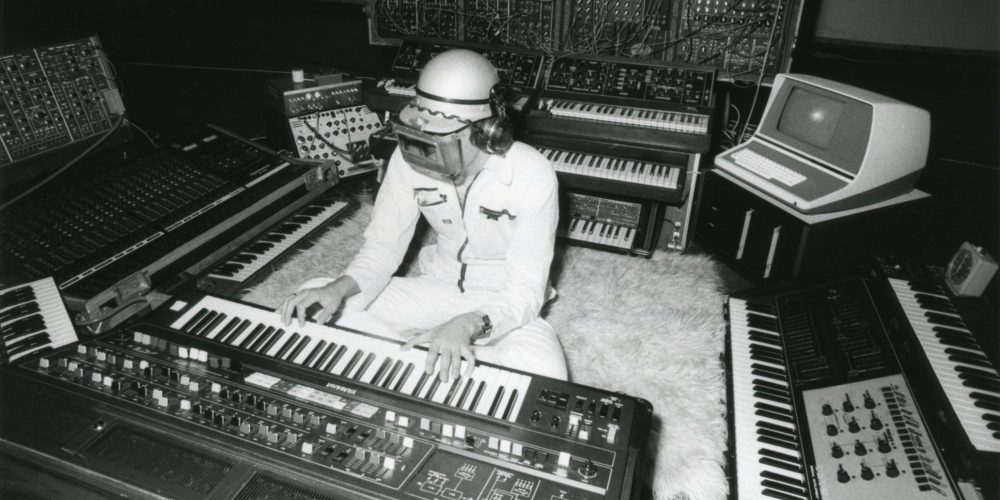
Throwback: Linz Steel Symphony
In 1980, electronic music pioneer Klaus Schulze opened the Ars Electronica Festival with a concert of live recorded sounds from the Linz steelworks voestalpine.
-
![[ˈdaːzaɪn] – Audiovisual Performance](https://ars.electronica.art/aeblog/files/2021/09/51443064605_0d1cf63418_o_2000x1000-1000x500.jpg)
[ˈdaːzaɪn] – Audiovisual Performance
Embedded in a technical, symbolic and metaphysical universe, the audiovisual performance [ˈdaːzaɪn] by media artists Arno Deutschbauer and Micha Elias Pichlkastner alias “Sective” immersed the packed Deep Space 8K in a reloaded atmosphere.
-
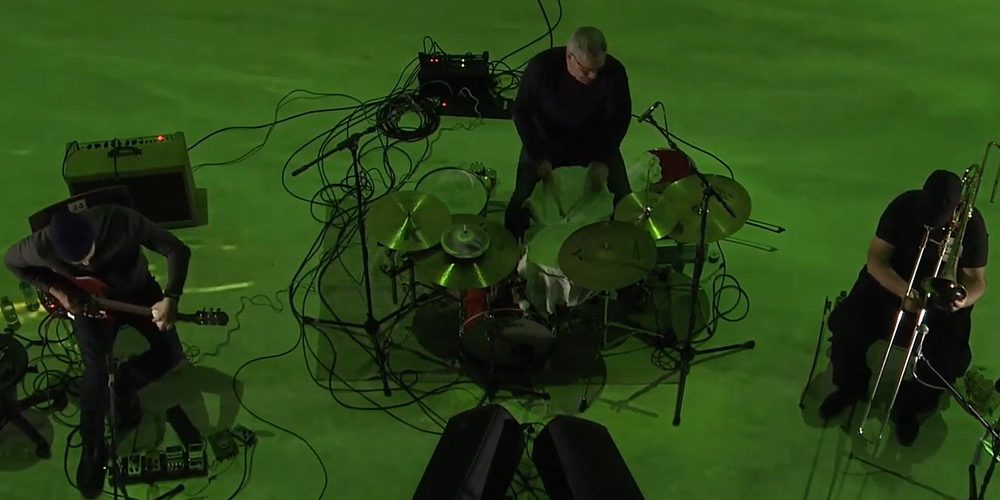
Und Ja, And Yes
Trombonist Werner Puntigam, guitarist Beat Keller and percussionist Georg Wilbertz have come together at the Ars Electronica Center to present their freely improvised chamber music miniatures.
-
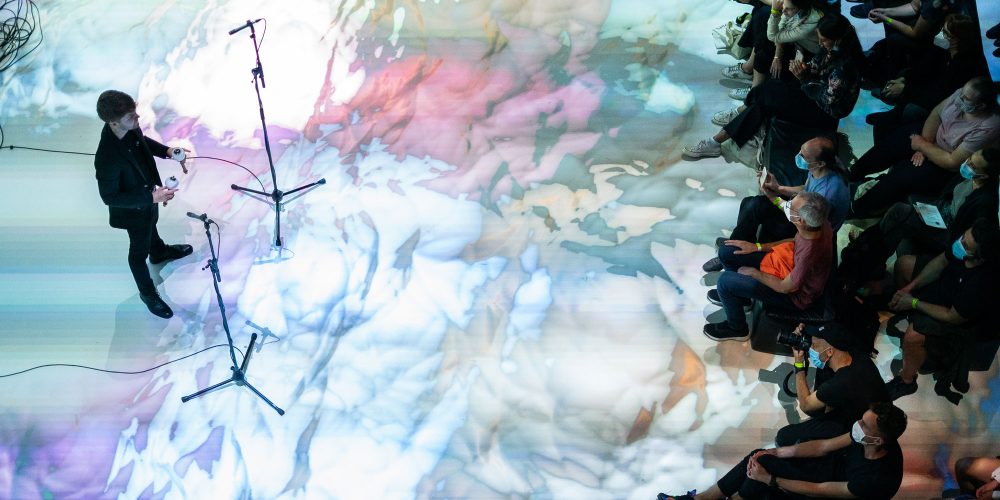
Temazcal – The art of percussion
An acoustic, visual and digital interpretation of Javier Alvarez’s “Temazcal” for maracas by percussion artist Elliott Gaston-Ross to live visuals by Florian Berger.
-
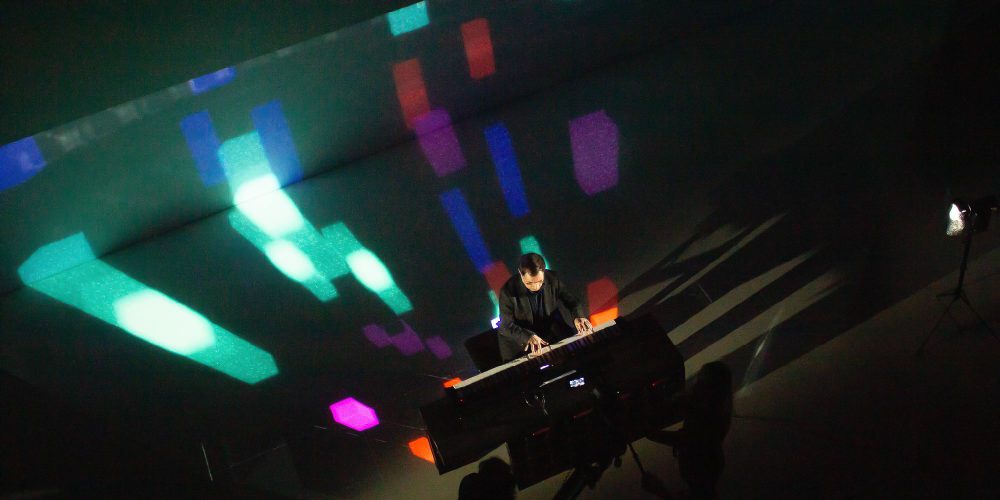
Sounding Letters – AI and human intelligence in concert
There have been many attempts to express music in words. But what happens when you transform a sequence of letters into music with the help of Artificial Intelligence?
-

Deep Space LIVE: TEXTA “Mehr oder Weniger”
TEXTA gave an upfront presentation of the new album “Mehr Oder Weniger” at Deep Space 8K on October 1 – accompanied by live visuals of the collective “Tagtool”.
-
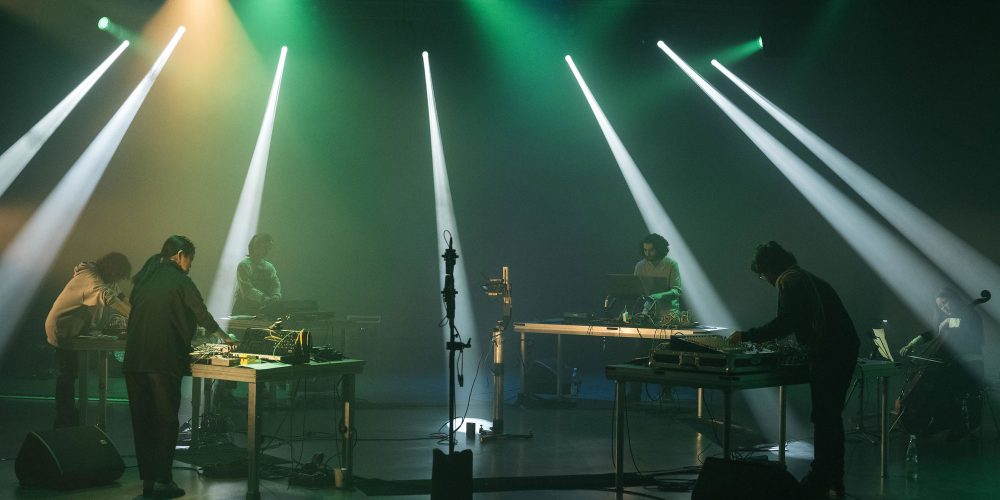
Prix 2021: Exploring and composing music worldwide
Exploring new sounds – with great joy in experimentation and a healthy dose of passion.
-
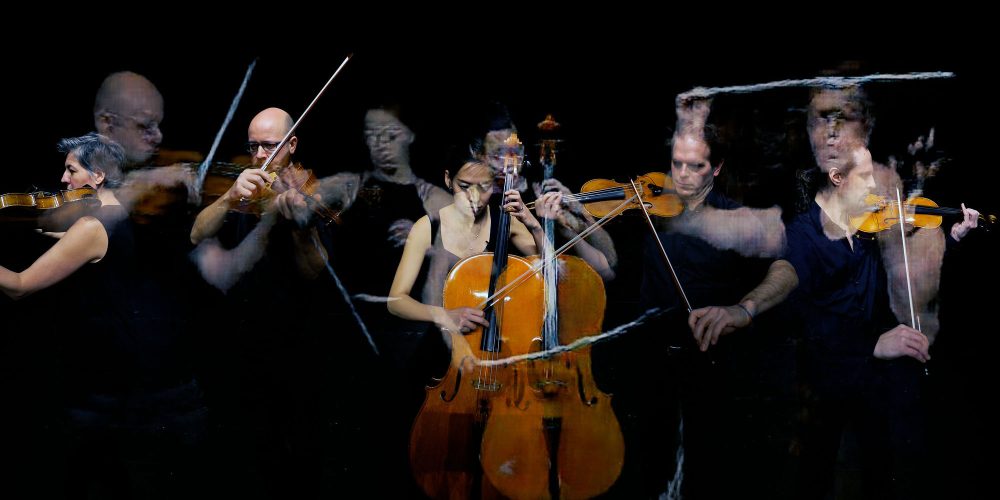
Prix 2021: Musicians face the new reality
The reality as we experience it around us, we create ourselves. It is constructed and at the same time changeable and unstable.
-
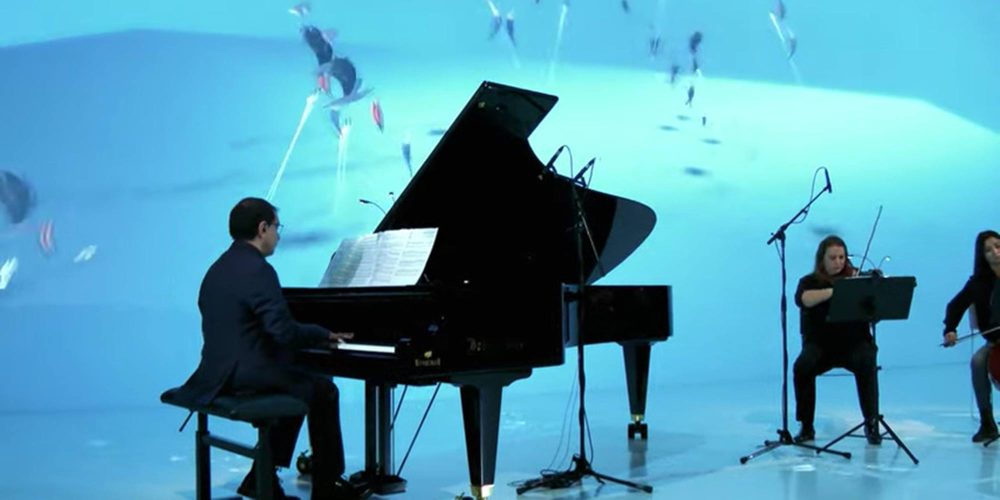
Classical Music: Composed by AI, Played by Humans
It sounds paradoxical, but what would happen if artificial intelligence writes the notes for us and we only take on the role of musicians?
-
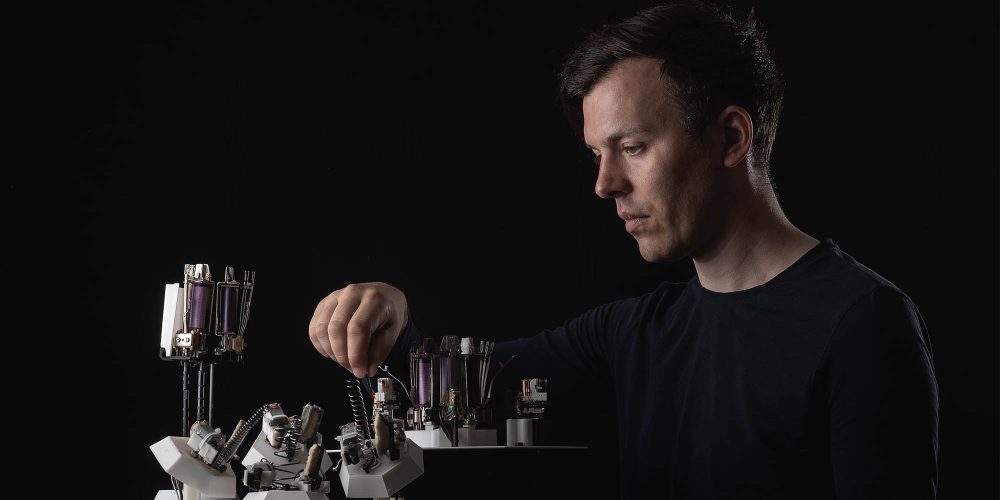
He lets mini-robots make music
An interview with this year’s EMAP Residency Artist: Moritz Simon Geist!
-
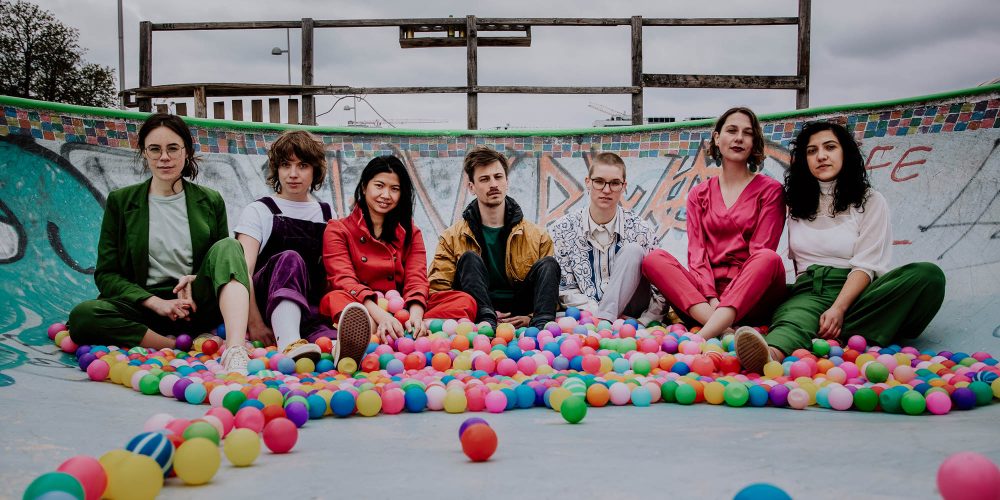
MAMMA FATALE
Celebrate life with music, make you think with lyrics. Enjoy avant-garde pop/jazz of the collective MAMMA FATALE.
-
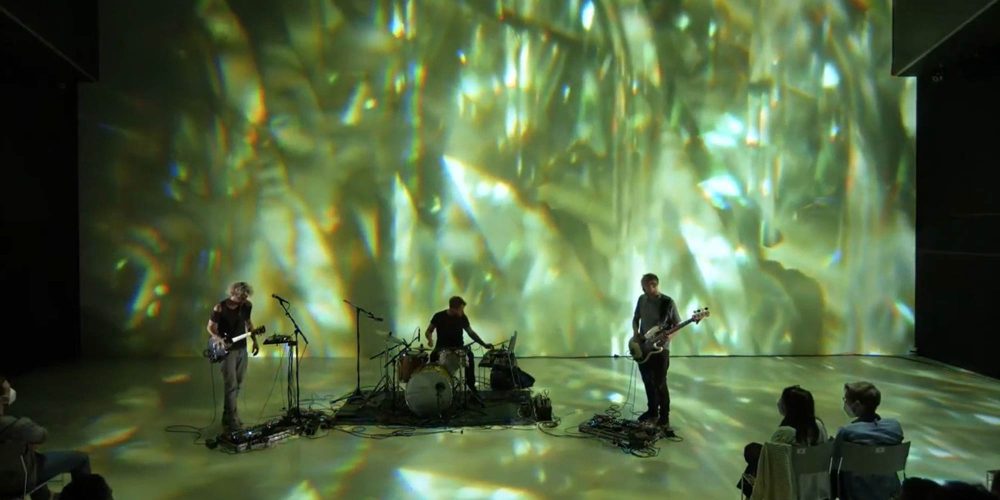
Elektro Guzzi
Elektro Guzzi play hypnotic techno sound with guitar, bass and drums in Deep Space 8K to the visuals of Eyup Kuş.
-
![ungezähmt [untamed]](https://ars.electronica.art/aeblog/files/2021/06/ungezaehmt-1000x500.jpg)
ungezähmt [untamed]
While the Trio Verve lets classical music sound in deep space, the visuals of Monocolor underline the musical description of a landscape.
-
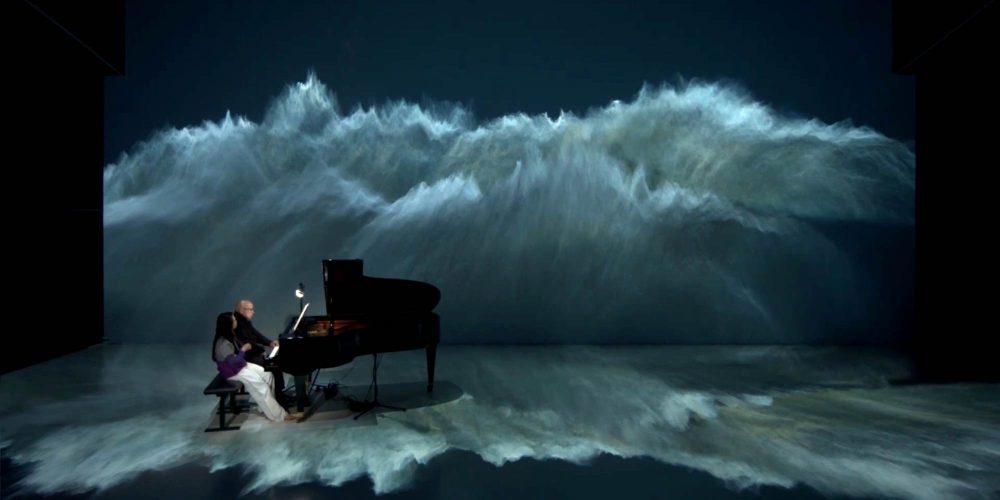
Pianographique in Remembrance
A memorial concert for the victims of the Corona Pandemic. Maki Namekawa and Dennis Russell Davies perform, Cori O’lan contributes the visuals.
-
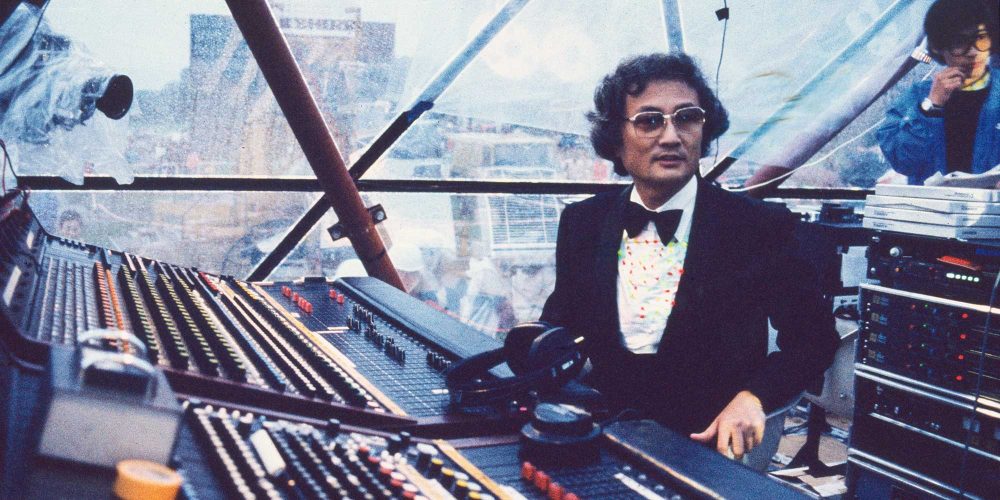
Who was Isao Tomita?
He not only laid the foundations of the synthesizer boom, but also pushed boundaries and influenced numerous sound artists.
-
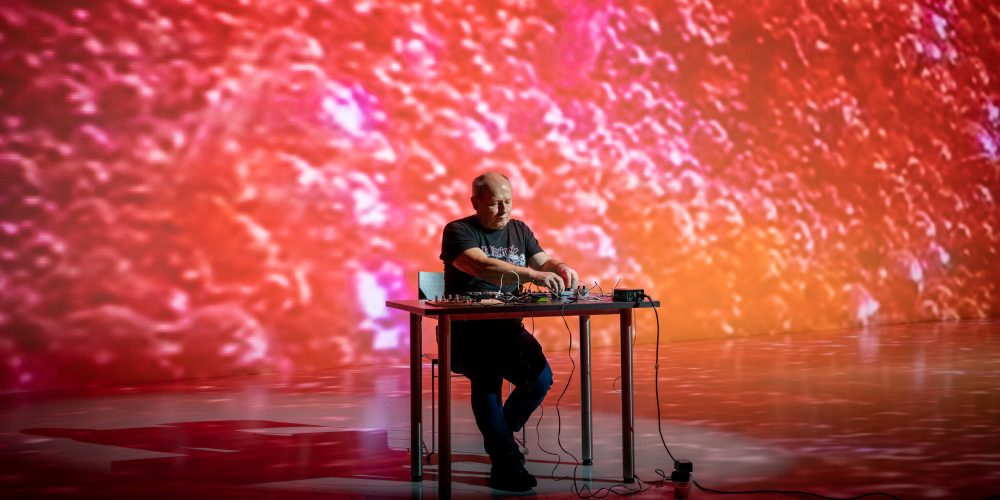
About disappearance
In 2020, Wolfgang Fadi Dorninger receives the City of Linz’s Art Appreciation Award in the category of Media, Product and Communication Design and defy the event-free times with a performance on December 1 in the Ars Electronica Center’s Deep Space 8K that will be broadcast on Home Delivery. A different kind of awards ceremony.
-
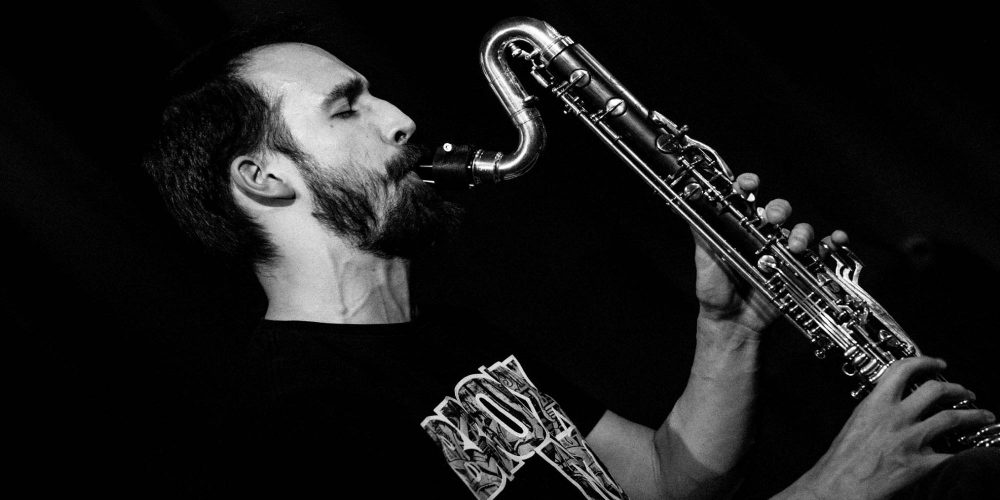
Artificial compositions and machine-made music – The AIxMusic Festival 2020
Music and technology, artificial intelligence and musical instruments, discussion panels and workshops. One term unites all these elements in one: The AIxMusic Festival!